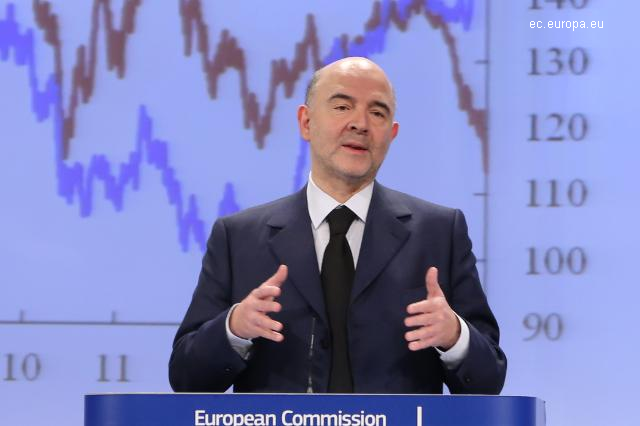The EU Macroeconomic Imbalance Procedure
Romania is one of the 16 EU member states identified by the European Commission as experiencing macroeconomic imbalances.

România Internațional, 26.02.2015, 13:37
The European Commission decided on Wednesday to open the Macroeconomic Imbalance Procedure for Romania and Portugal, two of the 16 EU member states identified as experiencing macroeconomic imbalance in November 2014. The European Commissioner responsible for economic and financial affairs, Pierre Moscovici said Romania was included on this list following the decision of the authorities in Bucharest to suspend the country’s foreign assistance programme in 2015.
According to a European Commission press release, Romania is experiencing macroeconomic imbalances, which require policy action and monitoring. External and internal imbalances were reduced significantly during the countrys three consecutive programmes with the EU and the IMF. However, risks from the relatively large negative net international investment position and a weak medium-term export capacity deserve attention. Moreover, the stability of the financial sector has been preserved so far, but external and internal vulnerabilities of the banking sector remain, the European Commission release also reads.
The Macroeconomic Imbalance Procedure has been opened for 16 states, which are placed in different categories. Romania is in the second of the six existing categories, of which the most serious is the Excessive Imbalance Procedure. Romania is in the same category as Belgium, The Netherlands, Finland, Sweden and Britain. Germany, the driving engine of European economy, is in the third category, up one stage, alongside Hungary. Spain, Ireland and Slovenia are in the fourth category, with the Commission deescalating the procedure for Slovenia. In the fifth category, France is in a difficult situation, and was given a new deadline by the Commission, namely 2017, to tackle the problem of its excessive budget deficit. France is joined in this category by Bulgaria, up one stage compared with last year.
The European Commission has recommended member states to intensify their economic reforms and keep a close eye on their public finance. These recommendations are presented to the European Council and they are expected to be discussed at the Economic and Financial Affairs Council in March. By mid April, member states are expected to present their new national reform programmes and their stability or convergence programmes, based on which the European Commission will make a new set of country specific recommendations.






























